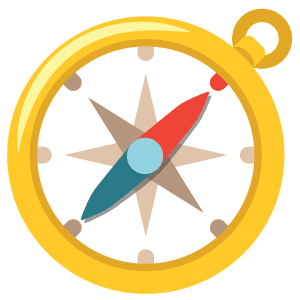
Time for a website redesign or a completely new website? Great. You turn to a website agency to get it done? Smart. But how can you make sure that a big project like a new website goes as smoothly as possible? Let’s talk about it.
One of the biggest misconceptions is about what a web agency does in your project. While agencies are experts in their field, they really shine when it comes to collaboration. Kicking off the project with a discovery session and diving deep with your stakeholders provides important info about your company, ideal client, industry, and integration needs.
Think of the web agency as an extension of your team. Share your goals and brand values early on to make sure everyone’s aligned.
Effective communication is super important. Regular meetings and updates keep the project on track and allow for tweaks as needed. By keeping the lines of communication open, you can tackle any concerns before they turn into bigger issues.
Working with your agency should kick off with a clear roadmap. Without set expectations and goals, projects can easily drift off track. Start by outlining what you want to achieve (with your internal team as well). Are you looking to boost traffic, improve user engagement, or raise conversion rates? Whatever your goals are, make them specific and measurable. This clarity helps the agency tailor their approach to fit what you need.
Stick to timelines and milestones as much as possible. A structured timeline keeps everyone on the same page and ensures steady progress. Regular check-ins give you a chance to reassess goals and tweak strategies as needed.

While a visually stunning website can capture attention, prioritizing aesthetics over user experience (UX) is a common pitfall. A beautiful site that is difficult to navigate can frustrate users and increase bounce rates.
Focus on intuitive design. Collaborate with your agency to create a user-friendly interface that guides visitors seamlessly through your site. Consider factors such as loading times, mobile responsiveness, and easy navigation.
User feedback is invaluable. Conduct usability tests and gather input from real users to identify pain points. Use this feedback to refine the design and functionality of your website.
Creativity is key to standing out. But if you stray too far from your brand’s core identity, it can confuse your audience and water down your message.
Work hand-in-hand with your agency to find the right mix of innovation and consistency. Share your brand guidelines, like color schemes, typography, and tone of voice; these will help guide creative efforts.
Encourage creativity within those boundaries. Let the agency suggest fresh ideas while making sure they match your brand’s values and messaging. This collaboration can lead to innovative solutions that really connect with your audience.
Content is super important for any website. Many businesses mistakenly treat content creation as an afterthought, but it really should be part of the planning process from the get-go.
Team up with your agency to create a solid content strategy. Start by figuring out who your target audience is and crafting messages that connect with their needs and interests. This way, your content stays relevant and engaging.
Make sure to plan for regular updates. A static website can quickly feel outdated. Work with your agency to set up a content strategy for post-launch.

While SEO is important for getting noticed, overdoing it can actually backfire. Stuffing keywords and piling on backlinks might get you penalized by search engines.
So, aim for a balanced approach. Focus on creating quality content that really adds value for your audience. Team up with your agency to find the right keywords and use them naturally in your writing.
Also, keep up with the latest SEO best practices. Search algorithms are always changing, so staying ahead means keeping yourself educated. Work with your agency to track any updates and adjust your strategies as needed.
A common mistake is forgetting to plan for post-launch maintenance. A successful website needs regular updates and improvements to stay effective. Chat with your agency about maintenance plans before you launch. Figure out who will handle updates, security patches, and bug fixes. Having a solid plan ensures your website keeps performing at its best.
Don’t forget to do regular performance reviews. Check out your website analytics to spot areas for improvement. Work together with your agency to make changes that boost user experience and help you reach your business goals.

One common mistake is giving the agency the ONLY control and access to your website. While it might seem convenient at first, make sure you’re an admin as well with full access to your hosting and content management system (CMS). This lets you make important updates and changes whenever you need to and keeps you in control of your digital assets, avoiding any potential conflicts if your relationship with the agency shifts.
Knowledge is key! By getting a handle on the basics of your hosting and CMS, you can make smarter decisions. Plus, it’s a good idea to get your team trained on these platforms so you’re not too dependent on outside help.
To see how well your website is doing, it’s important to keep an eye on its performance. Just looking at web traffic numbers without paying attention to user behavior can mean missing out on valuable opportunities.
Identify key performance indicators (KPIs) that fit your goals. These might include conversion rates, bounce rates, average session duration, and user engagement metrics. Make it a habit to check these KPIs regularly to understand how your website is performing.
Use data-driven insights to guide your decisions. Work with your agency to dig into the data and spot trends. This info will help you make smart adjustments to your website strategy.
Creating a successful website isn’t just a one-and-done deal; it’s a continuous journey. Teaming up with your agency for the long haul can really boost your business.
Stay in touch and share your thoughts on their work. A great partnership thrives on trust, teamwork, and respect.
Don’t forget to explore new opportunities together. Your agency can share insights on the latest tech and trends. Work together to find creative solutions that keep your business ahead of the game.
Partnering with an agency to develop or enhance your website is a smart investment in your business’s future. By steering clear of common pitfalls and working together, you can build a site that truly reflects your brand and drives results.
Remember, success comes down to good communication, setting clear expectations, and a commitment to ongoing improvement. By using the strategies in this blog post, you’ll be well on your way to creating a website that grabs your audience’s attention and helps you hit your business goals.
If you’re ready to take the next step in your website journey, we’re here to help.


